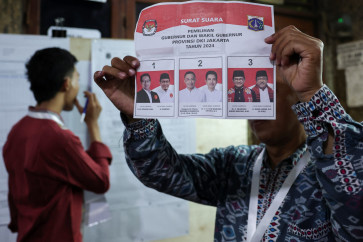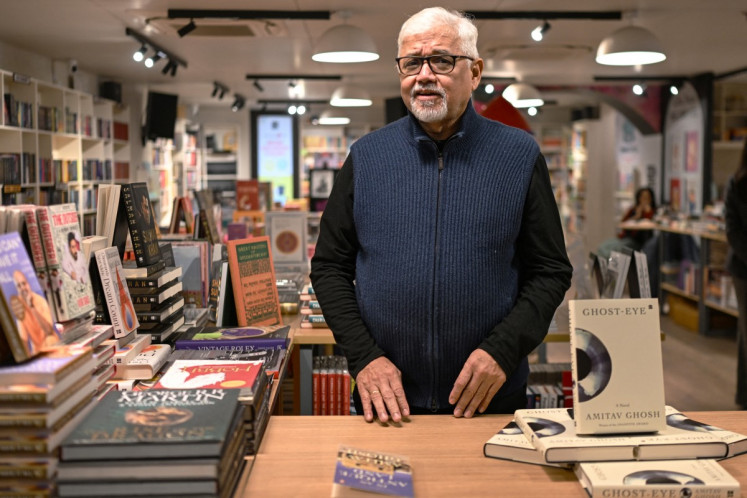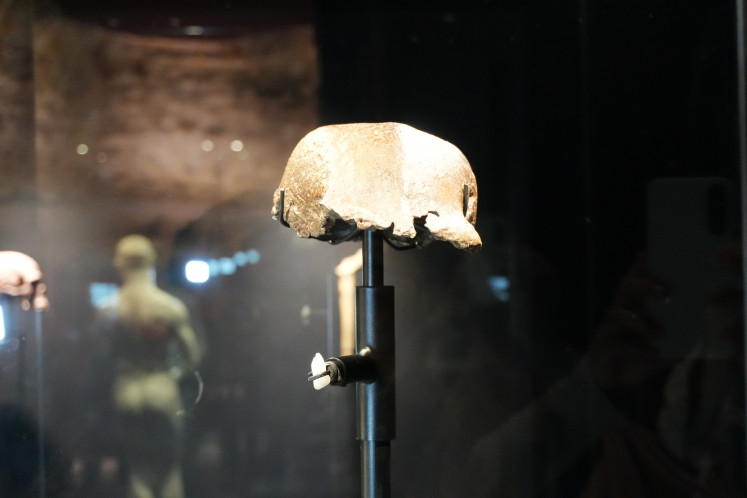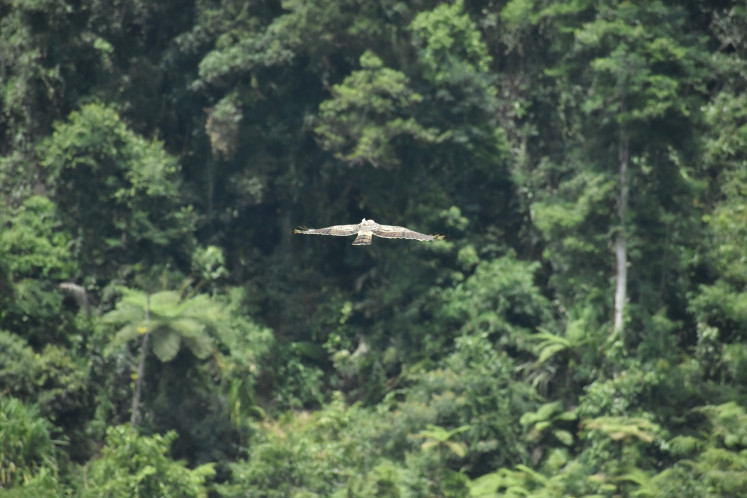Popular Reads
Top Results
Can't find what you're looking for?
View all search resultsPopular Reads
Top Results
Can't find what you're looking for?
View all search resultsCulture ministry, Irama Nusantara team up to digitize Indonesian music
The Education and Culture Ministry's Culture Directorate General and Irama Nusantara plan to digitize 1,000 releases by the end of this year.
Change text size
Gift Premium Articles
to Anyone
T
he Culture Directorate General of the Education and Culture Ministry has announced that it has teamed up with the Irama Nusantara Foundation to digitize Indonesian music.
Both set the target to digitize 1,000 releases by the end of this year, which will be available to the public on Irama Nusantara’s website.
The ministry’s culture director general, Hilmar Farid, said they planned to digitize music from various genres from across Indonesia. “We’ll also digitize various sounds as cores of music, including oral traditions,” Hilmar said during a press conference on Thursday.
The collaboration is said to be part of Law No. 5/2017 on cultural promotion, which aims to form an integrated cultural data collection system. “It’s not about creating more projects in the database, but connecting numerous on-going initiatives and forming an integrated cultural system,” Hilmar said.
Dian Octarina Wulandari, head of Irama Nusantara Foundation, said the digitization program was an expression of appreciation to the creators. The data is also considered an important source of reference, especially for historical and copyrights reasons.
Established in 2013, the non-profit initiative has digitized and archived 4,000 releases, or around 40,000 songs, with a majority taken from vinyl records of the 1950s to 1970s. “We realized the urgency as digitization didn’t exist in those years and the records are already damaged or fragile. The rise of popular music in Indonesia began in the 1950s when record labels started to flourish,” Dian said, adding that they also planned to digitize cassettes in the future.
The digitization process requires special skills and passion with several steps involved, including converting the audio from a vinyl record to a digital file on the computer, recovering the sound, scanning the album cover and transcribing any writing on the album before uploading them onto the website.
Aside from digitization tools, challenges also lie in finding the right people who have both the passion and skills in audio or visual fields and finding data sources. “At first we used our and our friends’ [record] collections,” she said. “But it’s getting difficult to find the sources, so we had to borrow [record] collections from sellers in Blok M [South Jakarta].”
Additionally, Hilmar said that numerous old records and data were stored as private collections, which could be difficult to acquire. He encouraged the public to give away their old records, photos and other documentation they no longer wanted to the directorate general. “Hopefully, we can save the precious treasures that are still out there,” he said.
The Culture Directorate General’s head of film, music and new media, Ahmad Mahendra, said they were collaborating with other agencies and initiatives, including the National Collective Management Agency (LMKN), to prevent piracy. “We’re creating guidance for newcomers in the music industry to understand how the industry works as part of our aim is to advocate for them,” Ahmad said.
Dian also stated that they lowered the quality of the audio files on their website to prevent illegal copying.
In June, prior to its collaboration with the ministry, Irama Nusantara announced that it planned to temporarily halt its operations due to the COVID-19 pandemic, as the work from home policies and its dwindling financial resources had made continuing difficult. (wng)











